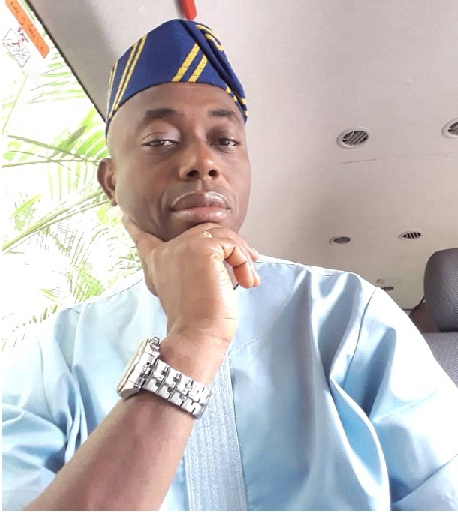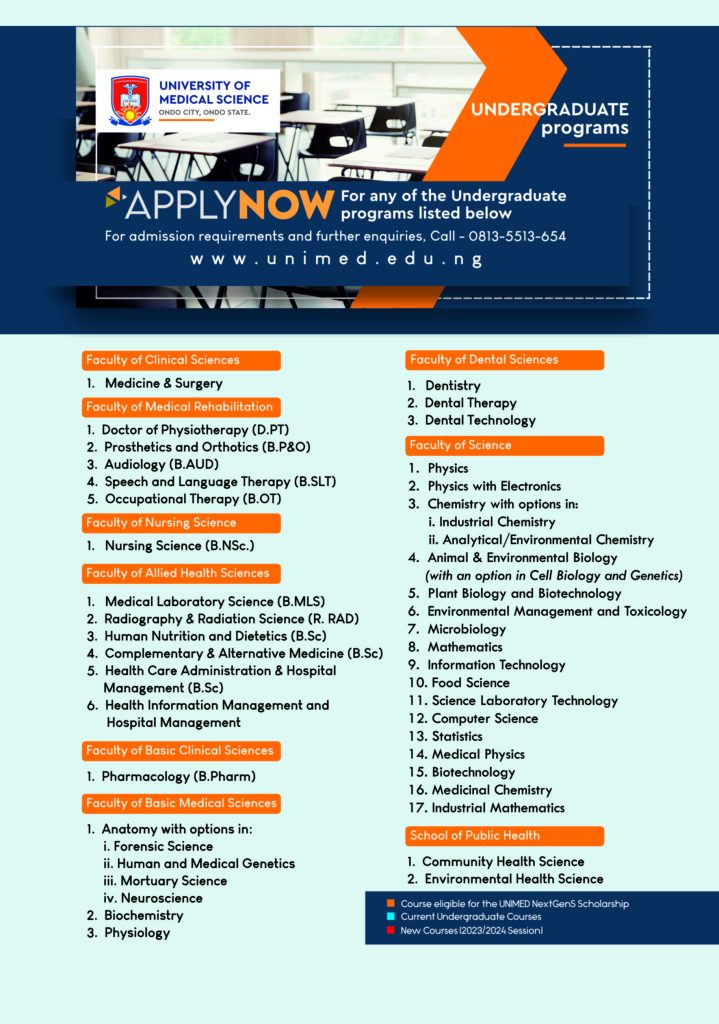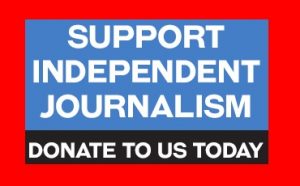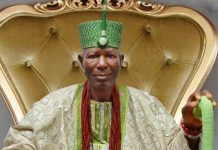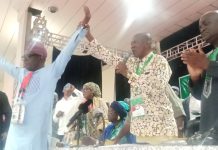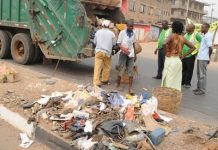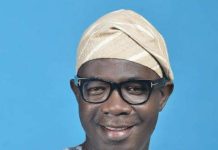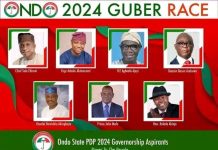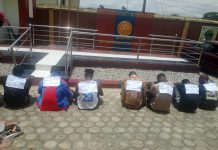Being the Text of the 2nd Public Lecture of Precision Online Newspaper, Delivered by Prof. Busuyi Mekusi on Sunday 27th November, 2022, at International Training and Conference Centre (Glass House), Federal College of Agriculture (FECA), Akure, Ondo State, on the Occasion of its 6th Anniversary Celebration.
Opening
I feel profoundly honoured to have been selected to give the second edition of Precision Online Newspaper, following the maiden edition that was delivered by my dear egbon, former boss and senior colleague, Egin Prof. Chief Femi Mimiko, who remains a leading light in scholarly engagements and intellectual exchanges; with predilection for both theoretical postulations and practical application of the principles of thesis and anti-thesis. Even though we had ideological contestations that precipitated consternations in the past, we both remain committed to deepening discourses that would liberate and enrich humanity, particularly Nigerians, as Nigeria wobbles and totters on political precipice, with restructuring remaining mere bate for votes in a dispensation when the federal government is believed to have casualised the employment of striking university teachers, who got paid pro rata ‘for job done’, in-line with government policy of ‘no work-no pay’.
Introduction
Two clear recent indicators that signpost the nature, characteristics and possibilities in Nigeria Educational System are the recently protracted 8-months ASUU strike, which elicited the admittance of failure at a stage from the Minister for Education, Mallam Adamu Adamu, who was a senior supervisory Minister to a Professor before the exit of the latter due to an unfounded ambition to be president, and the federal government acknowledgment that 133 million Nigerians, representing 63 percent, are living in poverty. This figure that was a confirmation that Nigeria is the poverty capital of the world was presented in Abuja on 17th November, 2022, during the launch of Nigeria’s Multidimensional Poverty Index (MPI) survey.
The credibility of the survey was predictably reinforced by the integrity of the agencies involved in it. They are: the National Bureau of Statistics (NBS), the National Social Safety-Nets Coordinating Office (NASSCO), the United Nations Development Programme (UNDP), the United Nations Children Fund (UNICEF), and the Oxford Poverty and Human Development Initiative (OPHI). It is instructive that education is one of the five indices used for the calculation, with health, living standard, security and unemployment being the other four. The foregoing depressing scorecard about the living standard of Nigerians patently shows the limited role of education in the country, when considered as an instrument of liberation from poverty and eclectic national development. One would also like to query the impact of the various social intervention programmes of the Buhari’s administration which claimed to have spent trillions of naira, N500 billion yearly between 2015 and 2022 (including $700 million that was part of the repatriated Abacha looted funds), to lift 100 million Nigerians out of poverty.
We are gathered here today to further the very many discussions on the state of education in Nigeria, coming up few days after the Speaker of the House of Representatives, Femi Gbajabiamila, conveyed a Summit on Tertiary Education in Nigeria, and I sincerely desire that today’s engagements would not end up like others, hoping that it would become some of the opinions to be aggregated soon by a consciously committed government to fix the weak Nigeria educational sector. Analogous to the intent of executive summary, I wholly align with the submission of Olusegun Obasanjo, the former Nigeria Head of State and President, at the House of Representatives Education Summit that a bottom-top (primary-secondary-tertiary) approach should be applied to interven in education, as desirable in resetting the warped load of an invalid whose troubled structure starts from the base or foundational level. I am, however, miffed by the opinion of Gbajabiamila that the proposed student loan Bank, the Bill which he sponsored, would be a successful externally borrowed concept, as he failed to consider the acute unemployment that is peculiarly a militating factor in Nigeria. Yet, education is still one of the 8 millennial goals.
The Concept of Education
Education, in its simplest form, is the process or art of imparting knowledge, skill and judgement, as well as the totality of facts, ideas, and skills that were leant, either formally or informally. This has led some thinkers to submit that the sub-total of what a human agency is exposed to between cradles and grave is education. Reviewing the history of education, Susan F. Semel (2010:2) posited that education “is concerned with ‘what was’. It provides us with an understanding of the past, the complexities of the present and the possibilities of what the future holds in store”. Semel’s opinion of what education should be is an automatic indictment on Nigeria’s resolve to confine her past to the dustpan, as history as a subject in humanity was despondently yanked off the curriculum, leading us to forget the place the rain started beating us, and leading us to forget the stage our clothes started experiencing dryness, as enthused by Chinua Achebe. Apart from the memorialisation required to set the direction for the future, the colonial disruption of African philosophical art and knowledge production equally affected the civilisation that should have caused the natural development that should have delivered the template with the local content that would enhance thought processes.
Although we cannot continue to blame the amorphous rude annihilating invasions of African societies by colonisers, the matter is nonetheless that of the biblical hypothesis of what the righteous would do, if the foundation is faulty. We could, therefore, be guided by the proposition of Semel (2010:9& 12) who holds that the sociology of education is concerned with ‘what is’, while the philosophy of education is about ‘what ought to be’. The major error in educational planning in Nigeria is that of understanding what we have presently, and being deliberate about attaining what we need to have. This explains why Nigeria is still locked down in basic infrastructural deficiency, in the turn of the 21st century, when other nations have left the domain of mere scientific technology, and are now applying information communication technology to achieve better and faster results.
It is saying the obvious that education is the key of all development efforts, as the necessity for national development is driven by human capital, woven around skills, knowledge and capacities. Education is the centrifugal force and life-wire of industrial development. It is also the fulcrum for moral regeneration, cultural production and enhancement, as well as revival of the people. Succinctly put, education produces the aggregate required manpower for national development, as it provides citizens with knowledge, skills, character, dexterity and desirable values that will actualise the development of a nation and self actualisation.
The question that would come to mind is why Nigeria has not profited substantially from education to achieve national growth? Evidently, the lack of synergy between knowledge production and acquisition that should help build skills and capacities has largely stunted the yearnings for national development. The theoretical knowledge emplaced by the curriculum at the level of higher education, which favoured the glamorisation of university certification, far above technical-laden educational system in polytechnic and technical schools, leaves students merely with head content and not handwork.
Not only have specialised technology and agricultural institutions failed to attain the mandates of their establishments, including staging courses outside their scope as a result of desperation for Internally Generated Revenue (IGR), polytechnics that should principally be committed to techs-electronics have been reduced to a second fiddle, with the proposition to convert them to universities, thereby sustaining the redundancy in the educational sector. The implication of this is that graduates are made burdens to the nation, principally hankering for limited employment spaces in predominantly government institutional employments, with a greater part of the limited private companies that used to absorb a fair percentage of them extinguished by poor infrastructures and general unfriendly manufacturing environment.
Nigeria Educational System and Notable Goals and Policies
The Constitution of the Federal Republic of Nigeria 1999, as amended, contains some provisions on education. For instance, Section 18(1) prescribes the need for government to: ensure equal and adequate educational opportunities at all levels, promote science and technology, eradicate illiteracy through free, compulsory and universal primary education and free adult literacy programme. Even though the Constitution does not make the right to education justiceable, Section 15(1) of the act states that “Every child has the right to free, compulsory and universal basic education and it shall be the duty of the government in Nigeria to provide such education”. In a somewhat granting of alibi for the above legally-bounding responsibility, Article 21A of the Constitution apparently, in self-negating manner, provides that the provision of free and compulsory education to all children from the age of six to 14 years would be subject to the discretion of the state, as determined by law.
Nigeria unequivocally sees education as an instrument “par excellence” for effecting national development. Starting from the first publication of the document on National Policy on Education in 1977, there have been other editions that came to being as a result of new additions relating to the coverage of education and application of tools. The five main national goals of Nigeria countenanced by the National Policy on Education are:
a free and democratic society;
a just and egalitarian society;
a united, strong and self-reliant nation;
a great and dynamic economy; and
a land full of bright opportunities for all citizens.
Furthermore, according to the document, Nigeria’s philosophy of education is based on:
the development of the individual into a sound and effective citizen the full integration of the individual into the community; and the provision of equal access to educational opportunities for all citizens of the country at the primary, secondary and tertiary levels both inside and outside the formal school system.
Looking at both the national goals and philosophy of Nigeria in the deployment of education as a tool for national development, it is clear that most, if not all, of the goals and philosophy have been largely unmet. For example, even though the country has experimented with democracy for an unbroken period of 23 years since after the return to democratic dispensation in 1999, democratic freedom as found in civilised democracies is still alien to the country because of instances of random violation of the rights of citizens to freedom; of expression, movements, etc. The brazen abduction of Nnamdi Kanu in Kenya, as pronounced by a competent court of valid jurisdiction on this matter is very instructive. The attempt by the Federal Government to regulate the use of social media by the citizens, and the ban imposed on Twitter recently are also evident of absolutism of power. This, however, is not to suggest acts of overboard in the inscription of the rights of citizens.
Undoubtedly, the goal of a just and egalitarian society is an anathema in Nigeria as the economic structures are driven by capitalism, even as corruption vitiates the social interventions of the government, leaving citizens in abject poverty. Contrary to the goal of building a united, strong and self-reliant nation, citizens are sharply and heavily divided along ethno-religious lines, with suspicion and mistrust tainting intentions and policies of government. This disunity has exacerbated the parlous industrialisation status of the country, as agricultural activities have been hampered by debilitating insecurity and marauding herders. The dynamism then contemplated for the economy becomes unattainable, with low productive activities, and heavy dependence on importation of basic goods and services. Notwithstanding the positive rating of the Nigeria’s economy by IMF and World Bank, the inflationary rate has climbed to 21.09 percent in October, 2022, and $1 exchanging for between 700 and 800 naira. We are, however, been made believe that the redesigning/beautification of some naira notes would give the naira the stimulus to creatively engage! Nigerians are miracle workers!
Looking at Nigeria education Philosophy, it is evident that the intentions to raise sound and effective citizens have been defeated by a number of issues. Central to these is the huge number of out of school children that stands at 20 million in October, 2022, according to the global data volunteered by the United Nations Educational, Scientific and Cultural Organisation (UNESCO), with a great leap from the 10.5 million recorded in 2020, mostly in the north, which has become a pool for recruitment by bandits and terrorists (ISWAP, Boko Haram, etc.). Given the disruptive tendencies of insecurity and poverty, which displace and disunite parents and children, as painfully found in the abductions of different categories of pupils, the commitment of Nigeria to achieve the integration of individuals to the country remains a pipedream. The foregoing, predictably, demeans the issue of access to educational opportunities for all at all levels, coupled with the impoverishment of greater number of citizens and the accelerated privatisation of education at all levels in the country. A failed national policy is arguably tantamount to aborted national development!
Various Initiatives taken on Education over the Years
The National Council on Education (NCE) is the highest decision-making body on education-related matters in Nigeria. Over the years, different policies have been emplaced, with some of them having suffered from somersaults. One of these policies that has been constant since 1983 when it was introduced was the 6-3-3-4 system of education which was meant to equip the citizens with skills that would make them self sufficient. This model requires that a learner would spend six years in primary school, three years in junior secondary school, three years in senior secondary school, and four years in a tertiary institution, even though some professional or specialised courses span five or six years at the tertiary level.
Educational Prospects in Nigeria
For the umpteenth time, it should be underscored that the major intention of education is technological growth and national development. The Nigeria educational system during the transitional British colonial era was robust enough to produce the required personnel that were required to take over from expatriates in the critical political, economic, educational and developmental sectors. Beyond the British-patterned educational system, the attendant disciplined attitudes of exquisiteness of the early professionals produced similarly positively affected the outcomes of the inputs of Nigerians who demonstrated sufficient capacities to justify the exit of the agents of the colonisers.
However, the political instability that culminated in the Nigeria Civil War, and subsequent ethno-religiously negatively skewed military interventions, summarily vitiated the gains recorded in every sphere of Nigeria development, particularly the educational sector, with noticeable depreciation manifesting in collapsed infrastructures, structures and templates for productive socio-political, economic and educational engineering. Even though the oil boom of the early 70s to early 80s afforded the federal government to build some higher institutions of learning, codenamed second generation universities, such as University of Port Harcourt, University of Calabar, University of Ilorin, University of Maiduguri, University of Sokoto and Bayero University, Kano, with relatively fairly reliable physical structures emplaced, the story was not fundamentally the same in some southern states where universities were established and sited by the civilian governors in the 80s in their hometowns. That started the idea of what is now considered as reducing the establishment of universities or higher institutions to constituency projects.
The regional government headed by Obafemi Awolowo in the south west became the toast of all because of the free education programme that afforded the children of the poor and lowly to access education. The reverberating effects were felt to the extent that every sector of life was touched for good. Painfully, the listing of education in the concurrent list of the Nigeria 1999 constitution (as amended) has done more evil than good because of the hide and seek relationships between the federal government and the state counterparts in terms of policy-making and funding of education. With joint funding of the universal basic education programme for primary and junior secondary school requiring the payment of counterpart funds by states to access the funds that are warehoused by the central government, primary education programmes have continued to suffer because of the inability or refusal of some of the sub national governments to access the funds, which they always blamed on lack of resources. In an apparent violation of the clear distinctive delineation of the constitutional corresponding rights and roles of both the federal and state governments, the agencies of the federal government like Joint Admission and Matriculation Board (JAMB), National Universities Commission (NUC), National Board for Technical Education (NBTE), National Commission for Colleges of Education (NCCE), National Examination Council (NECO), Teachers Registration Council of Nigeria (TRCN), etc., still play regulatory and supervisory roles on institutions established and funded by state governments. Ambivalently, TETFund, another intervention funding agency of the federal government, has been intervening in public state-owned higher institutions, in a clear departure from the distinctive independence that should guide the two levels of government.
It is instructive to note that one of the reasons ASUU went on the recent 8-month protracted strike was the need for the federal government to weigh-in on state governments to stop the proliferation of higher institutions, mainly universities, which are poorly funded due to the unnecessary multiplicity. Apart from the embattled public universities whose souls are meant to be rescued by the ironic disruptive strike actions by staff unions, mainly academic, there are new universities that were established and run using the Public Private Partnership model, in addition to the privately-owned ones that have enjoyed so much patronage from parents who desire that their wards should be excused from the constant contestations between the government and striking workers which intermittently shut the gates of the institutions against the students.
Challenges Confronting Nigeria Educational System
Some of the challenges facing the Nigeria educational system have been discussed under the general discussion of the trajectory of education in the country. With the tenability of the earlier discussed issues, permit me to highlight some specifics that challenge the educational system in Nigeria. One principal element that pervasively challenges educational system in Nigeria, apart from the issue of policy somersaults or lack of adherence to policy goals and philosophy, is the poisoned environment where learning is supposed to take place. Besides the poor learning infrastructures that make learning difficult in most public primary, secondary and tertiary institutions, the climate of fear imposed by insecurity and moral indecency are a form of impairment for the Nigeria educational sector.
Global right group, Amnesty International, in a report in April 2022 indicated that following the abduction of 276 Chibok schoolgirls by Boko Haram, more than 1, 500 Nigerian school children were abducted. Similarly, a report made available by UNICEF at about the same time stated that 11, 536 schools were closed by the Nigerian government as a result of abductions of school children, leading to the truncation of the education of approximately 1.3 million Nigerian children. While banditry attritions were principally in northern Nigeria, the issue of child labour, early marriage, and other limiting economic and socio-cultural practices/reasons have led to children dropping out of school in the south. The negative impacts of school closure and lack of access on knowledge production and skills acquisition for national development are humongous. This retardation would also diminish the nation’s GDP and general economic growth. In addition is the issue of scarce resources that go into the rebuilding of destroyed school facilities.
The place of an ideal space for learning within a national sphere is reinforced by Promila Sharma (2007:13), to the effect that “the school plays a minor part in the mental development of a European boy; the major part is played by the life of the country in which he grows up”. This is as Sharma goes ahead to denounce the breeding of fear in learning, as she posits that “fear kills creative thinking. Fear dulls the mind and heart so that we are not alert to the whole significance of life; we become insensitive to our own sorrows, to the movements of the birds, to the smiles and miseries of others” (168). Talking basically about the innate cognitive capacity of a child to acquire knowledge, the European example used by Sharma applies to a normal child, including Nigerians. It is, therefore, instructive that the climate of fear and anxieties precipitated and perpetuated by insecurity and poverty in Nigeria is antithetical to the educational system of the nation. The educational goals of Nigeria are not only periled, but national growth becomes dodgy.
Interestingly, the reservations Sharma has about the educational engineering of her native country, India, are pointedly illustrative of the conditions in Nigeria, specifically considering European influence on the curriculum of the two post-colonies. Sharma (2007:14) submits that:
But the schools in our country, far from being integrated to society, are imposed on it from outside. The courses they teach are dull and dry, painful to learn, and useless when learnt. There is nothing in common between the lessons the pupils cram up from ten to four o’clock and the country where they live; no agreement, but many disagreements, between what they learn at school and what their parents and relatives talk abut(sic) at home. The schools are little better than factories for turning out robots.
The above appraisal of the Indian Eurocentric predilection by Sharma speaks volume about the external prescriptions and impositions by IMF and World Bank on Nigeria’s curriculum. This is not to again mention the disruptive tendency of colonial invasions on the ability of Nigeria to develop her own educational models, using the ancient biological knowledge and philosophical worldview to meet the needs in the natural environment.
We may, therefore, adopt the recommendation Sharma made to India that educational policies should be driven by realistic needs of a society, and that the following conditions should be fulfilled in setting up new schools: “their courses are both lively and varied, and nourish the heart as well as intellect; that no disunity or discord disrupts the minds of our young; and that education does not become something unreal, heavy and abstract with which the pupils are concerned only for those few hours when they are at school”. The Nigeria case is so pitiable that pupils learn with poorly acquired English language, as most of their pseudo-illiterate parents struggle endlessly to help their children with take-home assignments they know little or nothing about. This is as they speak debased versions of the English language that have been made acceptable, all in the name of ‘Englishes’.
It is obvious that Nigeria education is fixated on the authoritarian and classical approach to education, which John Dewey, according to Sharma (2007:67&150) “stressed the ability to talk about things rather than the ability to do things” as well as emphasis on “what to think and not how to think”. As stated somewhere else in this paper, the emphasis on head knowledge, as against handwork, in Nigeria educational curriculum would make at best a poorly duplicated copies of ideas that exist somewhere else, with innate capacity remaining unchallenged and untapped for personal fulfilment as well as national growth and productivity. It is apparent that the Nigeria educational system is not only disempowering to individuals but the nation, with the two strands faced with unfulfilled aspirations and mandates. This is more so as Sharma (2007:118), reviewing the view of Jean-Jacques Rousseau’s on adult education, opines that humans, unlike animals, make deliberate attempts to adjust and improve self and the environment, concluding that “education consists of humans actively remaking themselves and their society”. However paradoxical is the fact that individuals who are fairly made, both within and outside the Nigeria educational system, have not been able to improve their society because of the predominant endemic negative order.
Other challenges confronting education in Nigeria include: poor funding, with the budgetary allocations to education in the past eight years dwindling and remotely connected to the 26 percent UNESCO benchmark; poor governance exhibited at the various levels of federal, state and local government, particularly in term of commitment; corruption and mismanagement of budgeted releases by education managers, as evidenced in the various grafts recorded and reported in some higher institutions; aversion for education-related courses by good students seeking admission, based on the poor job rating and welfare package for teachers; poor infrastructure; unstable nebulous curriculum; indiscipline manifesting in form of social vices such as examination malpractice, cultism, hooliganism, money ritual, internet scam, etc.; poor parenting that caused scarcity of positive influence from home, as a pupil is a product of the genes of the parents and genetic of the environment; unaffordable education, as a result of the commercialisation induced by privatisation; lack of attention to creative intelligence and innovative capacity as well as poor teachers and bad managers.
Prospects of Nigeria Educational System
As signposted in the different sections of the paper before now, the Nigeria Educational System has been an admixture of positives and negatives. It is analogous to the case of a wage-earning worker whose salary could not ‘take home’. In all spheres of the Nigeria life, over the years, education has averagely but insubstantially, as canvassed by some, helped to remove illiteracy, unemployment, poverty and unnecessary evils that obstruct the development process of Nigeria. It has assisted in developing critical thinking of some, and impacting skills in others. While one may bemoan the death and dearth of technical and vocational education in Nigeria, one resounding achievement that the Nigeria Educational System has attained is the trainable products that emerged from the theoretically-trained students at the different levels, particularly higher level. These individuals have been used to service the civil service, the education sector, banking, multinationals, private enterprises, and the few industries, many of which are now moribund, while some of them are exported to other nations in search of greener pastures, which is nothing but a mythical draining of our gains.
As governments at all levels devolve the ownership and funding of education to private players, even though the development encourages commercialisation, privately-owned primary and secondary schools, as well as tertiary institutions have up-scaled academic engagements and rating, both nationally and internationally. Even though some watchers have argued that some of these privately owned centres of learning are for profit making, some conscientious founders and proprietors have centralised their commitment to helping restoring the lost glory of education in Nigeria as well as helping in expanding enrolment by their participation. As these highflying few private schools and institutions are competing comfortably with older public ones, it is predictable that private participation, even though riddled with the bug of commercialisation and exclusion, is one option with which the government hopes to upgrade Nigeria Educational System, with little or no financial commitment or contribution to the sector, in view of the acclaimed scarce resources faced by it, which is however nothing but an excuse laden with misplaced priority. As the struggle to get Nigeria government to be up and running with her constitutional responsibility to education appears to almost being lost by the Academic Staff Union of universities (ASUU) who claimed to be fighting for the soul of public universities on behalf of poor Nigerians, it is certain that attaining the goals of Nigeria National Policy on Education requires the undeniable contributions of both the independent and partnering private players.
Propositions
The roles of external organisation in education policy-formulation and implementation in Nigeria are glaringly noticeable. While successive Nigeria governments have been guided by the advice of IMF and World Bank to liberalise and privatise education, in total disregard for the socialist programme advanced by some pundits, Nigeria may like to be guided by the submission of Emefa J. Takyi-Amoako (2015:6) that despite the contributions and good will of external development partners, “it has become apparent that it is not prudent for Africa to continue leaving the development of its entire national/regional systems including the education sector to the leadership of external development partners”.
Notwithstanding the unintended ambivalence in relating to discourses about Nigeria Educational System, it is imperative to propose certain elements that would help the nation go beyond paper requirements and settle down for sustainable growth and development. In order for Nigeria to have a functional educational system, some of the following, which are not, nonetheless, exhaustive, should be considered as probable options to reverse the negative status quo; there is the need to retool education policies, make curriculum domestically integrative, expand funding protocols, and enhance ownership and participation among citizens there is the urgency for need-based educational policies and developmental agenda, there is the need to establish synergy between educational institutions, research endeavours and end-users, with the focus on national development there is the need for a speedy revival of technical education to meet specific needs of power, energy, infrastructural expansion, telecommunication advancement, and deepening of the deployment of information communication technology in the area of innovative technology, to jump-start the economy there is the urgency for deliberate exchanges that would guarantee technology transfer, with the use of education for problem-solving returning specialised higher institutions of learning to their original founding mandates, i.e. technology and agriculture there is the need for the setting up of creative educational centres of excellence for innovations and development
intentional improvement of the general Nigeria educational climate to minimise educational migration by Nigerians through needed policies that would regulate the attitudes of public officials, in relation to subscription to overseas education
emplacement of deliberate policies that would attract very good committed teachers to the profession, beyond the shoddy attempt at professionalising the teaching career and compensatory approval of a raised retirement age for teachers, which is nothing but a burdening ‘largesse’ owing to the centrality of universities in the agenda of national development, Nigeria should countenance the opinion of Harry Gray (1999:1) that universities play “positive role in sustaining and developing the national economy… they produced highly qualified graduates, engaged in research at the forefront of invention and provided jobs galore in their local community as well as a great deal of local purchasing power”, etc. To this end, academics in higher institutions of learning in Nigeria must think out of the box, and deploy available resources to justify their relevance. This is as excuses would merely jolt them out of relevance.
Conclusions
Within the framework of this intervention, it is not outlandish to argue that existing policies, attitudes, and goals of Nigeria Educational System are mere pretentious political and governmental tools found in most developing democracy, with some remarkable news coming from Rwanda. Going forward, it is desirable that emphasis should be on realistically creative educational template, with the centralisation of hand-work, skills and innovations far above head-knowledge. It is also expected that there would be a continuous funding of public schools and institutions to guarantee access, and allow for wilful subscriptions by citizens, as against compulsive privatisation and commercialisation that would breed exclusion. To achieve this, government should encourage the crowd-funding of public schools, with the institutionalisation of endowment by individuals to support the less privileged. This would both help create access and keep in focus the quest for national development. Furthermore, beyond mouthing, education should be made a tool of national development, to elicit the required attitudes from all stakeholders, learners, teachers and managers. As we savour the prospects of the Nigeria educational system, and confront frontally the attendant challenges, we must continue to strive for a better tomorrow through the propositions made herewith, as no nation can development above the quality of her education!
Thank you!


